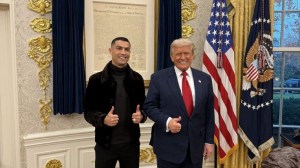Meta Founder and CEO Mark Zuckerberg has found himself in the limelight for two contrasting reasons lately: a controversial policy change and an ultra-luxurious wrist watch. In a recent video, Zuckerberg announced that Meta would discontinue third-party fact-checking on its US platforms, resulting in debates in digital and political circles.
While the announcement raises critical questions about Meta’s future role in combating misinformation, another element of the video drew unexpected attention — the watch on Zuckerberg’s wrist.
What is so special about the watch?
Zuckerberg was spotted wearing the Greubel Forsey Hand Made 1, a timepiece priced at an eye-watering $900,000. Known for its exclusivity, the Hand Made 1 is assembled entirely by hand, with only two or three models produced annually. The Swiss brand is celebrated for its meticulous craftsmanship and appeal among elite collectors.
Social media erupted with comments about the extravagant watch, with some joking that it costs more than a house. This is not Zuckerberg’s first foray into high-end horology; he has previously been seen wearing other luxury brands like Patek Philippe and FP Journe.
Social media users were quick to comment on the juxtaposition of Zuckerberg’s high-end watch and his message about community-focused policy changes. One venture capitalist remarked, “Zuck was wearing a ~$1M watch in his community notes announcement video. Nothing says I understand the culture shift of the community more than a watch that costs more than most people’s houses.” Another user questioned, “Any idea why Mark Zuckerberg is wearing an expensive watch?”
A user commented, “I didn’t even realize they made $1M watches. That damn watch better tell the future.” “He can now afford it since he receives a growing dividend from $META,” another user said.
Eliminating third-party fact-checking
Meanwhile, the decision to eliminate third-party fact-checking has sparked concerns about the potential spread of misinformation. The feature, introduced to address false narratives on social media, has been a polarising element of content moderation. Critics argue that its removal could hinder efforts to ensure accurate information, while supporters believe it might reduce bias and overreach in content policing.








